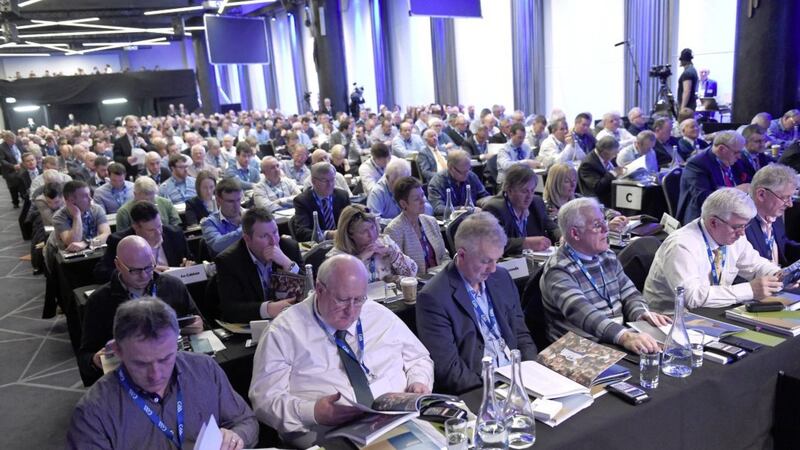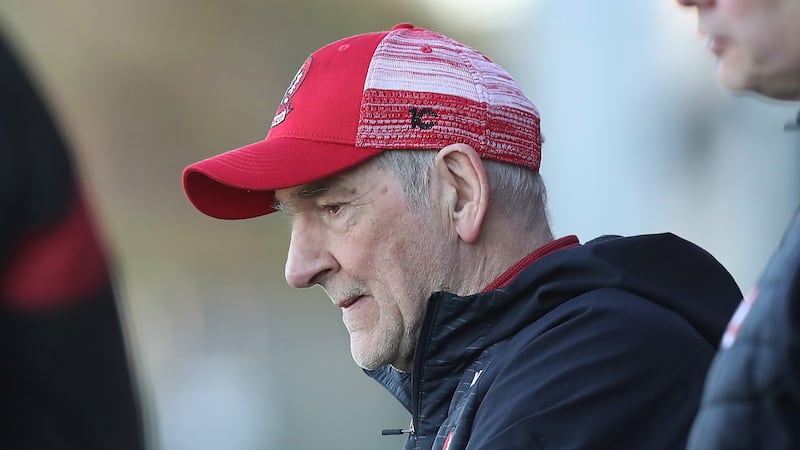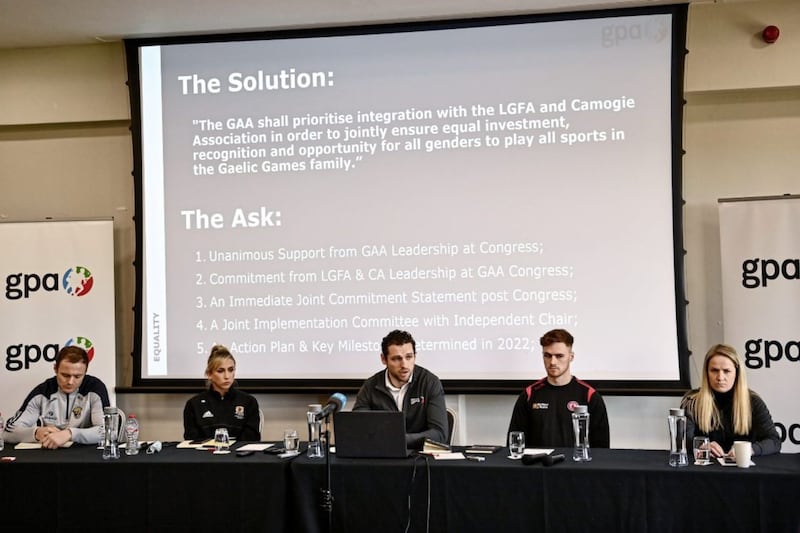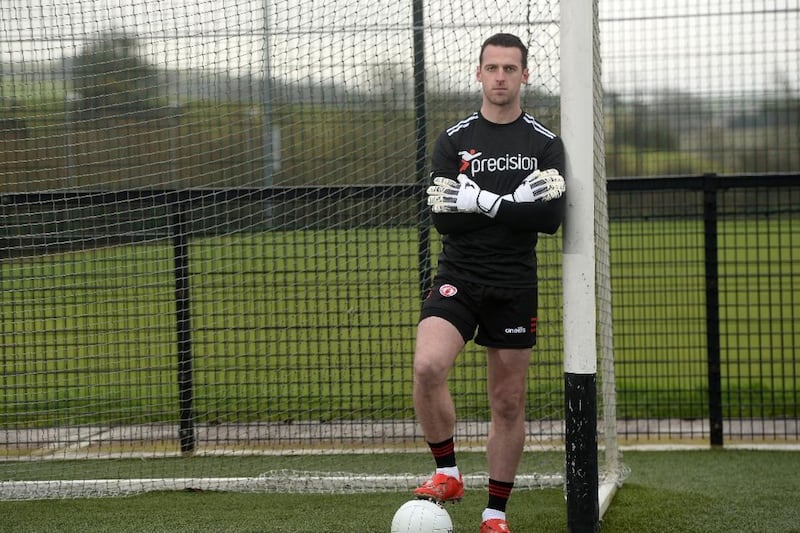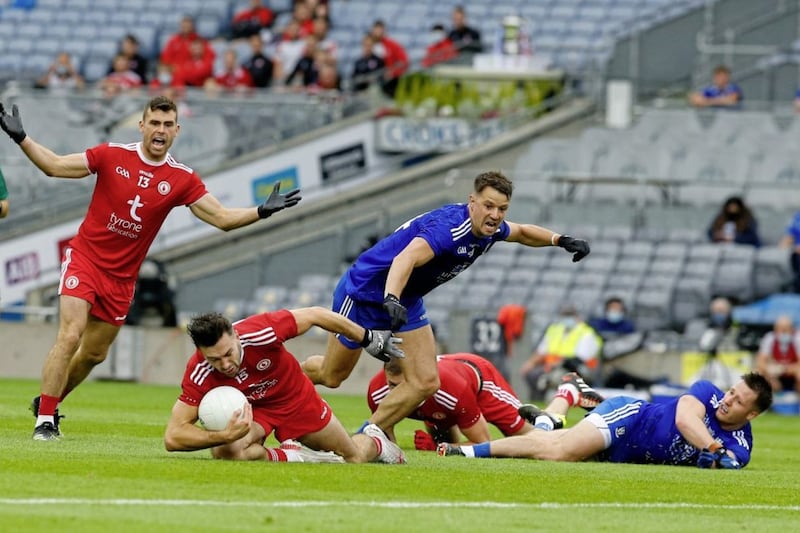MALE, pale, and stale. Those three labels could be cast at the GAA’s Annual Congress this weekend. At least two of them would be largely valid – but just because such criticism might be true, would it be fair?
Conscious that two of them certainly apply to myself, I’d advance the argument that it’s not what you are, it’s what you do that matters.
The GAA can’t help being largely male. Moves are well underway to integrate Camogie and Ladies Football but they still have their own ruling bodies. There are also increasing numbers of female delegates, right up as high as county chairpersons (chairpeople? Chairs?).
As for pale, well we don’t see all that much sun on this island, so we’re mostly white, albeit tinged with blue (or orange for some of the vainer/younger/single ones). Joking aside, the GAA has been reaching out to ethnic minorities and loudly celebrates the successes and inclusion of players from non-traditional backgrounds.
Stale? Sure, there’s some truth in that. The average age of delegates is surely over 45, probably in their 50s mostly, even with recent rules and regulations to limit terms in office. There are ways and means around those, of course, with officers swapping roles around in order to remain involved (and influential).
However, that criticism could also be construed as something worthy of praise.
Certain county officials are long-serving because few, if any, others are willing to put in the time and effort that they provide.
It’s easy to snipe from the side-lines on occasion; it’s far harder to deal with the details week in, week out, in committee rooms.
This column has made this argument before – if you’re not happy about what’s going on at your club, your county, in your province, or at the national (indeed, international) level of the GAA, then perhaps you should get (more) involved.
The Club Players’ Association is one platform but politics – and that’s what we’re really talking about – is ‘the art of the possible’.
More influence can be exerted from within rather than from outside; let me assure you of that as a long-serving member of the media.
There are serious and valid concerns about the recent and future direction of the GAA.
Questions have to be asked.
The CPA has been doing so, and endeavouring to have more influence at Congress. There’s a power struggle going on within the Association.
Somewhat unusually compared to other areas of life (and clearly what follows are generalisations), the younger, more liberal elements mostly appear to be opposed to the increased commercialisation of the Association, while the older, supposedly more ‘traditional’ types appear largely content with the way the GAA has changed in recent years.
Older heads may be more aware that bills must be paid, but it’s still right to wonder what the source of income means for the ethos of the Association.
Time will tell if the conflicting demands of the club and inter-county scenes lead to a greater shift in the GAA fixtures calendar – or go beyond that, splitting into two separate seasons.
The development and alteration of Irish rugby over the past quarter-century merits examination: the provincial and national set-ups have flourished, but at what cost to the club scene?
And while we’re on the subject of ‘cost’, how much longer will GAA volunteers, of whatever age, continue to give their valuable time – and their own money – and watch more and more make well-paid livings as a consequence?
/////////////
THIS column has long had a ‘Don’t write about Celtic/Rangers (‘Sevco’)’ rule (although it may have been breached once or twice).
I’m considering a new addition: ‘Don’t dare write anything that can be construed as questioning Kerry football’.
Last week’s column had the temerity to point out that Kerry Intermediate and Junior Football clubs have an advantage over most other counties in external competitions.
After the initial ‘absolute rubbish’ stage of the ‘Twitter debate’ (which admittedly can often be a contradiction-in-terms), there was some sensible discussion.
The Kerrymen may well have a valid point that other counties should change and copy their structures. Indeed I clearly stated that “their set-up is only to be applauded.”
Kerry’s complicated, convoluted system ensures plenty of competitive football, although replicating their divisional sides in other counties could be difficult.
If Kerry really doesn’t have more than eight clubs of senior football standard then surely that applies in most other counties? Obviously it depends on how you define ‘senior standard’.
The point remains that Kerry clubs competing in their Intermediate and Junior Championships have an advantage outside the Kingdom over most other counties because most other counties have more than eight clubs taking parting their own SFC. That’s simple mathematics.
Less simple is how to structure the provincial (and All-Ireland) competitions so that everyone has a fairer chance of success.
It wouldn’t be satisfactory to send the Armagh, or Derry, or Tyrone team that lost in their SFC first round to their eventual champions into the Ulster Intermediate Championship, would it? Arguably they’d be the ninth best team in that county, but that would involve the luck of the draw – and what would be the impact on the county Intermediate Championships?
It would also be a harder sell for certain counties to consider competing at no higher than Intermediate level in their provincial competitions (as the Kerry hurling clubs apparently do), but it might bring them more success, and, more importantly, greater benefits in terms of improving playing standards.
Despite the obvious disadvantages beyond their borders, most counties probably wouldn’t want to follow Kerry’s lead, for various reasons.
Anyway – that’s my last word on the subject. Honest.

